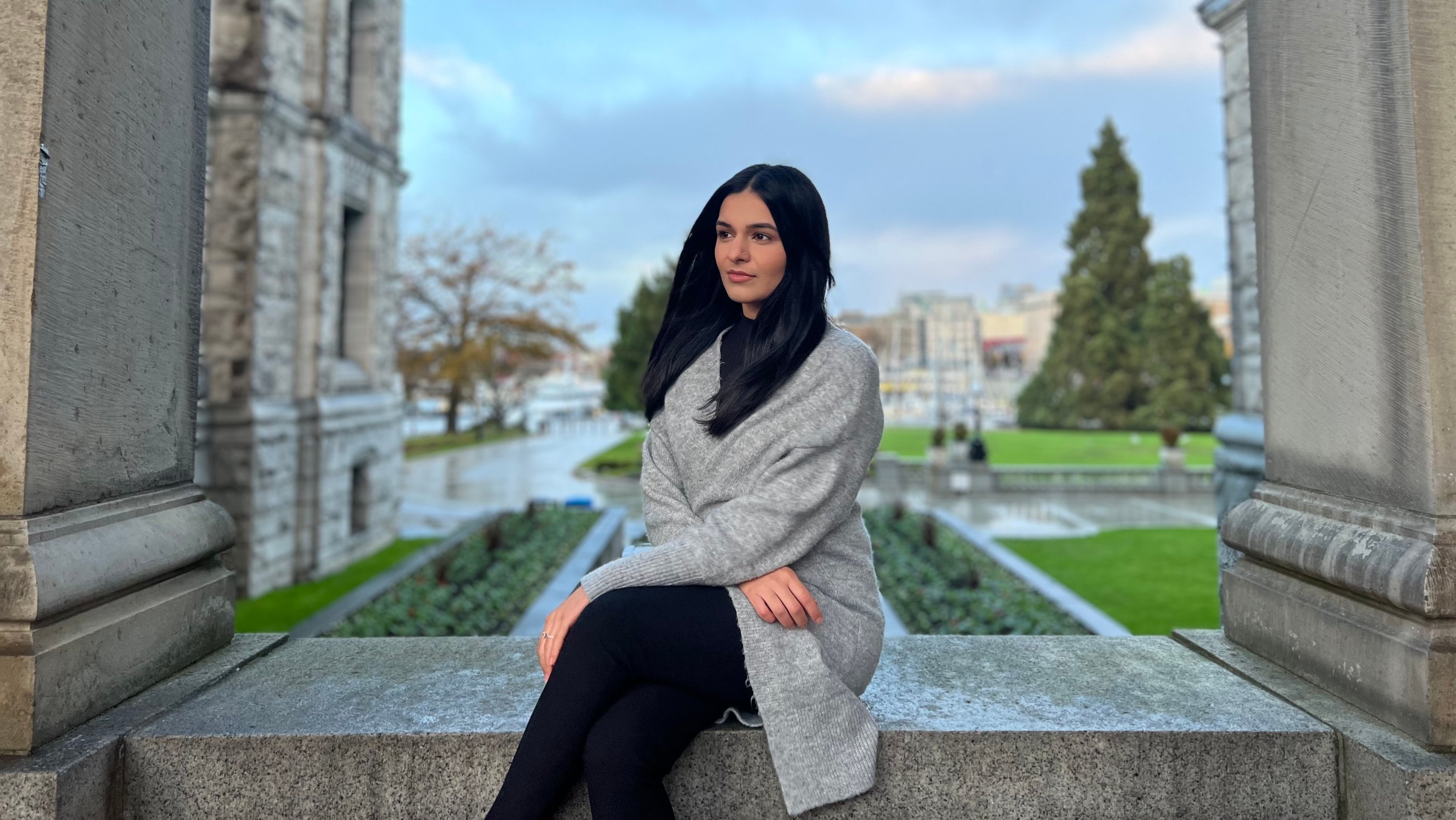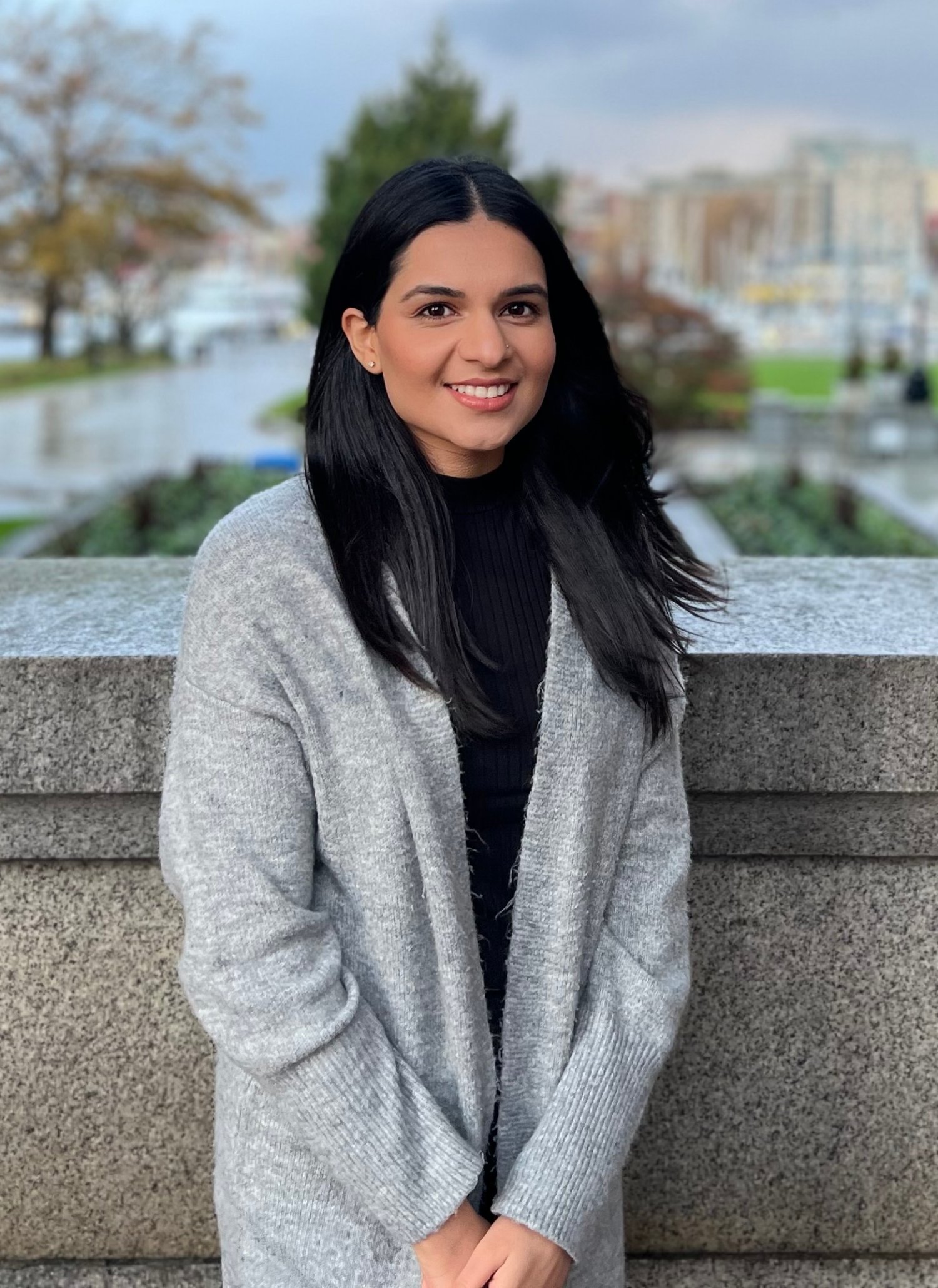Roohi Dodd knows that having the right person to talk to at the right time can make all the difference, which is why she is devoting her career to providing support for those affected by violence.
Set to graduate this week with her BScN from the University of Alberta's Faculty of Nursing, Dodd is already working as a public health nurse in Victoria. She will soon add duties as a forensic nurse examiner — a specialty that will allow her to collect legal evidence as she provides medical support to people who have suffered sexual or domestic assault, whether they are planning to press charges or not.
“It's being that safe person, and it’s very much trauma-informed,” said Dodd. “Forensic nurses are trained to have those conversations; they're going to be with you one-on-one for an extended period of time, so it doesn't feel rushed in any way.”
While Dodd, 26, has fortunately never experienced violence herself, she learned about it young. While studying for her first degree in psychology at the U of A, she took a job as a receptionist at the Saffron Sexual Assault Centre in Sherwood Park. She remembers an elderly woman coming in to seek support for abuse that had happened to her as a child.
“She never told anyone, not even her mom, because it was someone in the family and it was such a taboo subject,” explained Dodd, now 26. “She had nightmares and anxiety for all those years but never got any help.
“That resonated with me,” Dodd said.
Giving the vulnerable a voice
Dodd was soon promoted to the role of public educator at the centre, speaking to parents, teachers and children about healthy relationships. She wrote a storybook for younger children on boundaries and safety, which is still in use.
It wasn’t the first time Dodd had acted to give tools to the vulnerable. In 2015, she co-founded Girl to Girl: Young Women’s Empowerment Group, a charitable organization that now involves 200 youth in mentorship, leadership and giving activities. The idea stemmed from Dodd’s experience as the daughter of newcomers to Canada.
“That's where my drive to work hard came from — from seeing my parents work very, very hard,” Dodd said. “But because they were educated in India, they couldn’t provide me with guidance here in Canada.”
“I created Girl to Girl as a means for not only mentorship, but also a way to build leadership skills by getting youth involved in creating something good for the community.”
Participants pick a project — it could be a bottle drive for a local women’s shelter, filling backpacks for lower-income students or running a summer camp.
“Whatever issue is important to you and is personal to you, we’ll help you figure out what you can do in order to make it a reality,” Dodd explained. “We really put a lot of responsibility on our volunteers, so that they are able from a young age to start building the skills that helped me get to where I am today.”
While doing her degree, Dodd received a number of awards and scholarships, including the Harold and Florence Mosley Memorial Award in Nursing, Thirst for Knowledge Undergraduate Leadership Scholarship, Marian Koumarelas Memorial Leadership Scholarship, Louise McKinney Post-secondary Scholarship, Eva Trott Award in Nursing, and Ivy and William Thomson Undergraduate Scholarship.
Dodd got top marks academically but also found time to volunteer for both the Canadian Forensic Nurses Association and Nursing Network on Violence Against Women International. She credits the U of A’s nursing program for teaching her about leadership, conflict management and how to advocate for herself as a nurse. She also appreciated the broad range of experience she got during her work placements at Edmonton’s Royal Alexandra Hospital, where she worked with people experiencing homelessness, incarcerated individuals and at-risk youth.
“This is my passion. This is why I want to wake up in the morning — to help those people that are affected by violence.”

